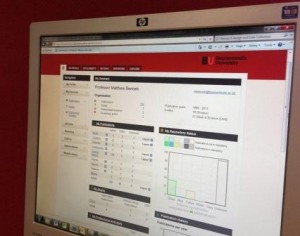Please see below for a recent update from the Health Research Authority with regard to a new amendment tool and the online submission of amendments.
If you have any queries please email Suzy Wignall in Research Development & Support.
Online submission of amendments and a new amendment tool is now live across the UK, as of today Tuesday 2 June 2020.
These new processes for handling amendments are part of our ongoing Research Systems programme to improve services for applicants.
- The amendment tool is designed to simplify the amendment process for applicants and
- The ability to submit amendments online means that applicants can track the submission history of amendments.
From 2 June, all applicants making an amendment to project-based research will need to complete the amendment tool and submit their amendment online. The tool replaces the Notification of Substantial Amendment (NoSA) and Non-Substantial Amendment forms. Amendments to Research Tissue Banks and Research Databases will also be submitted online from this date.
To help with these changes, we have now published:
For queries on how to complete the tool, questions on the results from the tool, once complete or how to submit your amendment online, please contact amendments@hra.nhs.uk
Amendment Tool
The new amendment tool should be used for all project-based research including amendments being made under the COVID-19 fast-track process, from 2 June. (Research Tissue Banks and Research Databases will continue to use the IRAS generated substantial amendment forms.)
The tool categorises the amendment and provides tailored guidance on how to submit. It will identify any review bodies the amendment needs to be sent to, based on the changes that are being made to the study. It also provides detailed information about the amendment to participating sites.
The Notice of Substantial Amendment/annex 2 form can be generated by completing the tool. This version of the form can then be submitted to the REC and the MHRA (as required) when making a substantial amendment to a trial.
The amendment tool is based in Excel, but in the longer term we plan to fully integrate the tool functionality into IRAS.
The introduction of the amendment tool may require changes to Sponsor’s quality system (e.g. SOPs, guidance documents and templates etc.). Organisations should do this in accordance with the new process in good time. Given the additional demands placed across the healthcare research systems at this time, the MHRA has confirmed that it will adopt a pragmatic approach during inspection.
Submitting amendments online
Once you have completed the amendment tool, you should follow the submission guidance provided in the submission guidance tab of the tool. If the amendment needs to be submitted, then the amendment tool, together with all the supporting documents, should be uploaded into a new part of IRAS and submitted using the online system.
For amendments to Research Tissue Banks and Research Databases the IRAS substantial amendment form should be submitted online in place of the amendment tool.
Applicants will need to set up a new login and password for the new part of IRAS. We are sharing a login process with NIHR systems for the new parts of IRAS that provide online booking, the Combined Ways of Working (CWoW) pilot, and this new amendment system. If you already have a login for any NIHR system or one of these new parts of IRAS you can use the same details. If you do not already have a login for those systems, you will need to set up a new login and password as guided by the system.
Once you have logged in, applications will need to input the IRAS ID for the study as well as some other information regarding the study and amendment, some of which will need to be copied directly from the tool itself. Applicants can upload documents including a pdf of the tool itself. The system will issue an email to confirm the amendment has been submitted.
 Last year, RKEO revised and re-published the BU guide to full Economic Costing, know as fEC (which some people choose to pronounce in a ‘Father Jack’ style). The full guide can be found on the
Last year, RKEO revised and re-published the BU guide to full Economic Costing, know as fEC (which some people choose to pronounce in a ‘Father Jack’ style). The full guide can be found on the  MRC have written to us outlining a recent update to its funding policy to allow the inclusion of a one-page ‘methodology and experimental design’ annex to the case for support.
MRC have written to us outlining a recent update to its funding policy to allow the inclusion of a one-page ‘methodology and experimental design’ annex to the case for support.
















 SPROUT: From Sustainable Research to Sustainable Research Lives
SPROUT: From Sustainable Research to Sustainable Research Lives BRIAN upgrade and new look
BRIAN upgrade and new look Seeing the fruits of your labour in Bangladesh
Seeing the fruits of your labour in Bangladesh Exploring Embodied Research: Body Map Storytelling Workshop & Research Seminar
Exploring Embodied Research: Body Map Storytelling Workshop & Research Seminar Marking a Milestone: The Swash Channel Wreck Book Launch
Marking a Milestone: The Swash Channel Wreck Book Launch ECR Funding Open Call: Research Culture & Community Grant – Application Deadline Friday 12 December
ECR Funding Open Call: Research Culture & Community Grant – Application Deadline Friday 12 December MSCA Postdoctoral Fellowships 2025 Call
MSCA Postdoctoral Fellowships 2025 Call ERC Advanced Grant 2025 Webinar
ERC Advanced Grant 2025 Webinar Update on UKRO services
Update on UKRO services European research project exploring use of ‘virtual twins’ to better manage metabolic associated fatty liver disease
European research project exploring use of ‘virtual twins’ to better manage metabolic associated fatty liver disease